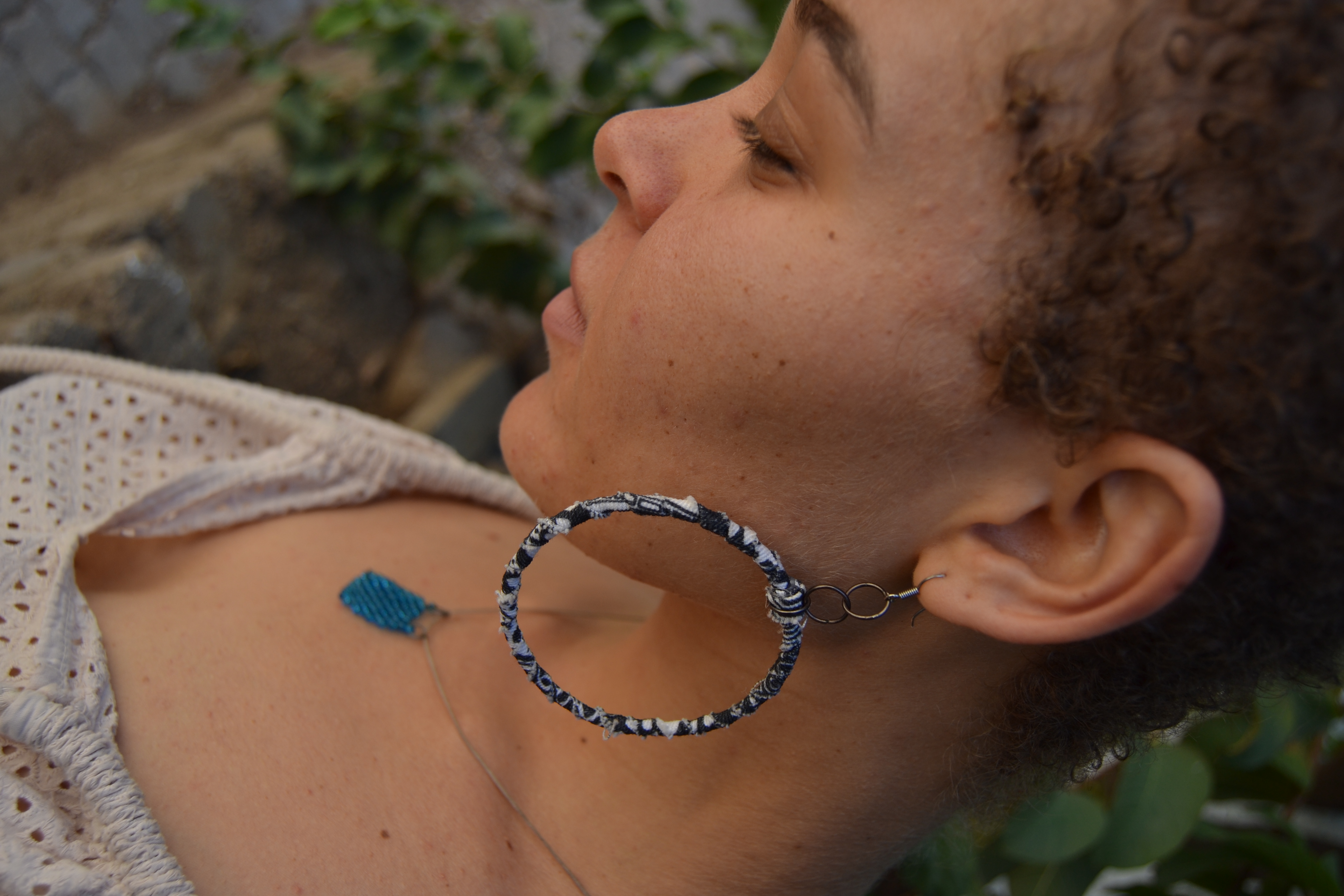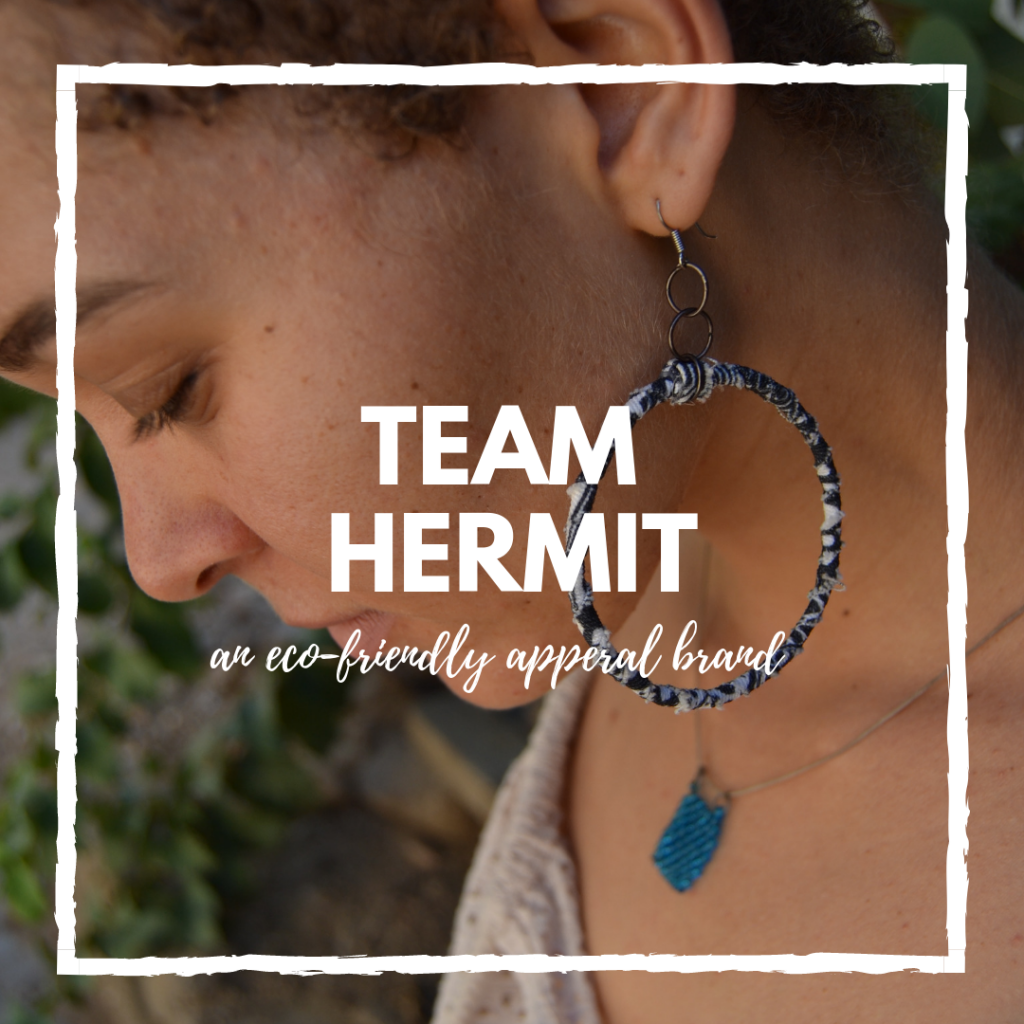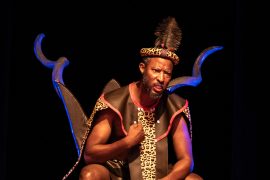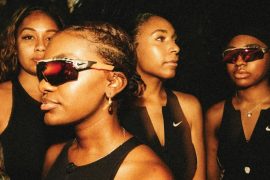Not only is fashion currently one of the dirtiest industries in the world to work in, but the lack of supply-chain transparency has led to unethical manufacturing processes and disconnection between customers and where their garments come from. This was extracted from an article we stumbled upon in TeenVogue.
The Namibian fashion industry has a seemingly low and slow active participation in sustainable fashion practices and despite efforts made from a small number of fashion designers, it is inspiring others to take lead.
To find out more about sustainability practices within the Namibian fashion industry, we spoke to the creative founder of Team Hermit, Chantal Magano Kambrude, about how she’s making a difference and why it’s so important.
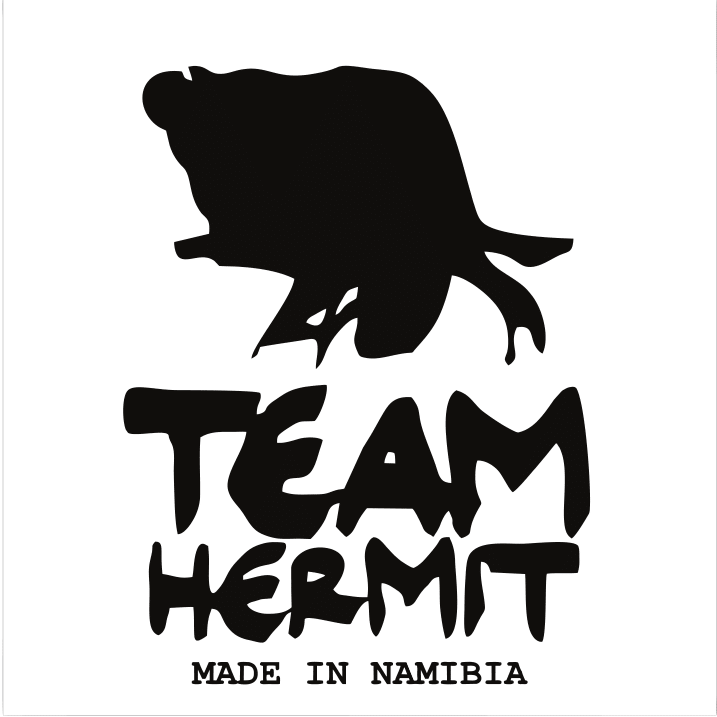
M: Tell us a little more about Team Hermit?
TH: Team Hermit was established in 2012 during one of the most challenging times in my life. Through my transition into young adulthood, my struggles with depression and mental health issues, and the process of one of my best friends dying, nothing but art made sense. Although I neglected this aspect of my creativity in my final years in high school, whenever I was struggling art, specifically doodles, helped take my mind off the pain and helped me heal some subconscious parts of myself. Team Hermit was born from three doodles I produced during this time that were reflections of myself and two other people in my life at the time.
M: What inspired you to start your brand?
TH: The three doodles, which I later named ‘*3ARTH’ developed into mandala style designs called ‘*BeautyFULL’, ‘Love’ and ‘LISTEN’ and I noticed each had their own personality and meaning and came together to make whole new energy too. The combination of the 3 Earths (3ARTH) is called ‘Harmony’.
I noticed the reactions of the people around me when seeing the designs and got suggestions to learn how to screen print them onto shirts. As a teenager I had some experience screen-printing with my dad’s ex-wife and decided it would be interesting to see how the designs translate to clothes so I started looking for a place to get it down. Literally by providence, I found a community art studio in downtown San Francisco (shout out to the Tenderloin Community Art Studio on 6th and Market!), that teaches free courses to help support the local artists in the area so I decided to learn how to do it myself instead. I learned how to screenprint my designs and did the first print run on white cotton tees that ended up being gifts to friends and family. After that I tried to see what else I could create with the designs and learned how to use a sewing machine, also at the Community Art Studio, and today I’ve created at least 16 different products under the Team Hermit brand.
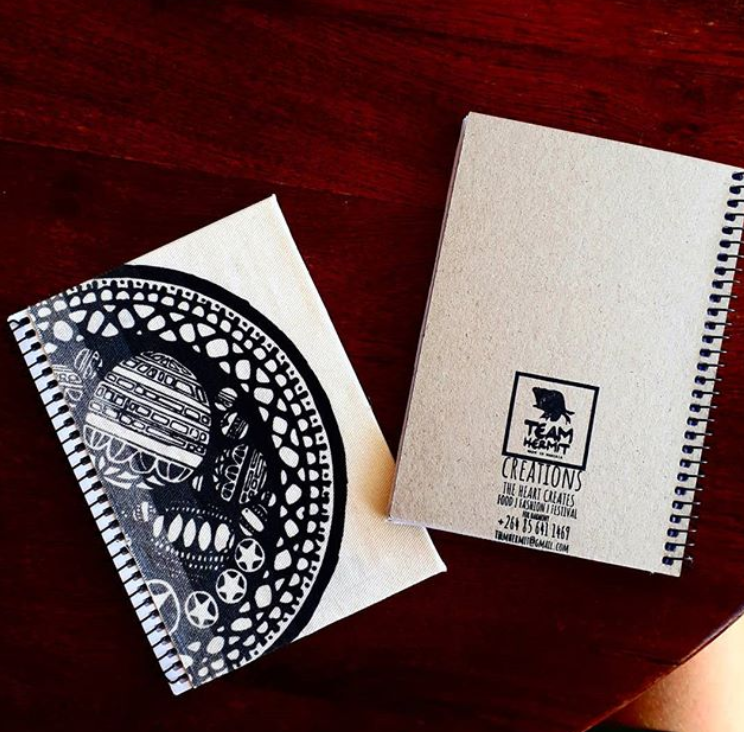
M: How would you explain the importance of brands like yours making steps to become more ethical and sustainable in Namibia to someone who isn’t well versed in what that means?
TH: Humans are at the top of the food chain on this planet for a reason – we have the intelligence to develop technology and industry to improve the quality of our lives – unfortunately, our priorities have been confused. Instead of creating with purpose, we have created solely for profit, which is not a terribly bad thing, except that for-profit alone, we have made too many compromises that negatively affect our own health and the health of our environment. Right now, the planet we call home is facing a global climate crisis, which our actions in the industry have significantly contributed towards, and unless
we address it the Earth will definitely heal itself and survive but humans probably will not.
Products and services that are only profit-minded are destroying our only home by producing tonnes of single-use plastic, burning fossil fuels, contaminating water and polluting our oceans, but it is possible, to conduct business in a way that safeguards our planet.
The more brands and businesses that move toward safer production and consumption (see UNDP Sustainable Development Goal 15) the less our environmental impact and the less damage we cause to our only home. It is important not just for Namibia, but the entire world, to solve this global issue, or at the very least to not contribute to it by doing business as it always has been done.
We have to evolve together in order to survive this crisis – evolving business to be cleaner, greener and friendlier, in harmony with our Earth and ourselves- Team Hermit.
M: What are the most important aspects to you regarding ethical and sustainable brands?
TH: Most importantly to me is asking how a brand (product or service) is of service not just to some humans some of the time, but how does it serve humans, animals, trees, and the environment at large. And even if the product or service only serves humans, does it do so without diminishing the quality of life of something else on the earth?
Humans and brands that have realised we are not the only ones here act and make decisions with compassion and consideration. This way of living or doing business is the next generation.
Compassion and consideration are the most important for me, and that also means compassion and consideration for yourself and your business. That gives us all a true mandate to evolve but it also gives us some grace to get there.
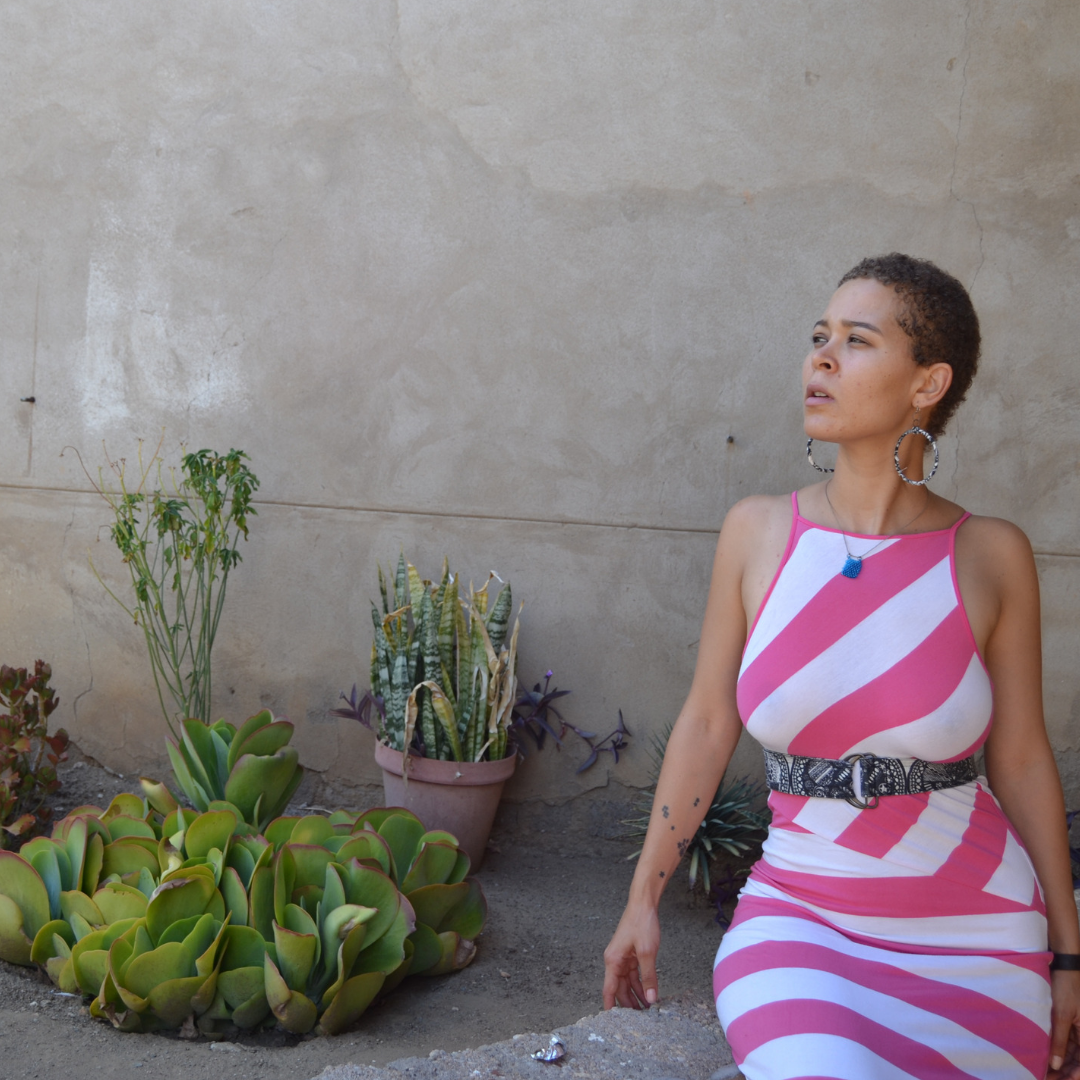
M: What have been some of the biggest challenges for you in doing this?
TH: Honestly, making a quick buck. For a long time, healthier and more sustainable options were more expensive or hard to find, in Namibia especially, and at the end of the day, bills have to be paid. Sometimes it was really difficult to not compromise on using safer materials because of accessibility or cost. Even Team Hermit still has areas that have to progress into being more sustainable and this is impacted by the products that are available locally but I am hopeful Team Hermit will be 100% clean in the next year or two and what matters most is the effort towards lessening our environmental impact.
At the genesis of this brand I was not thinking like this at all and used whatever I could find on the market but as Team Hermit has evolved so have our values so that gives me hope and faith.
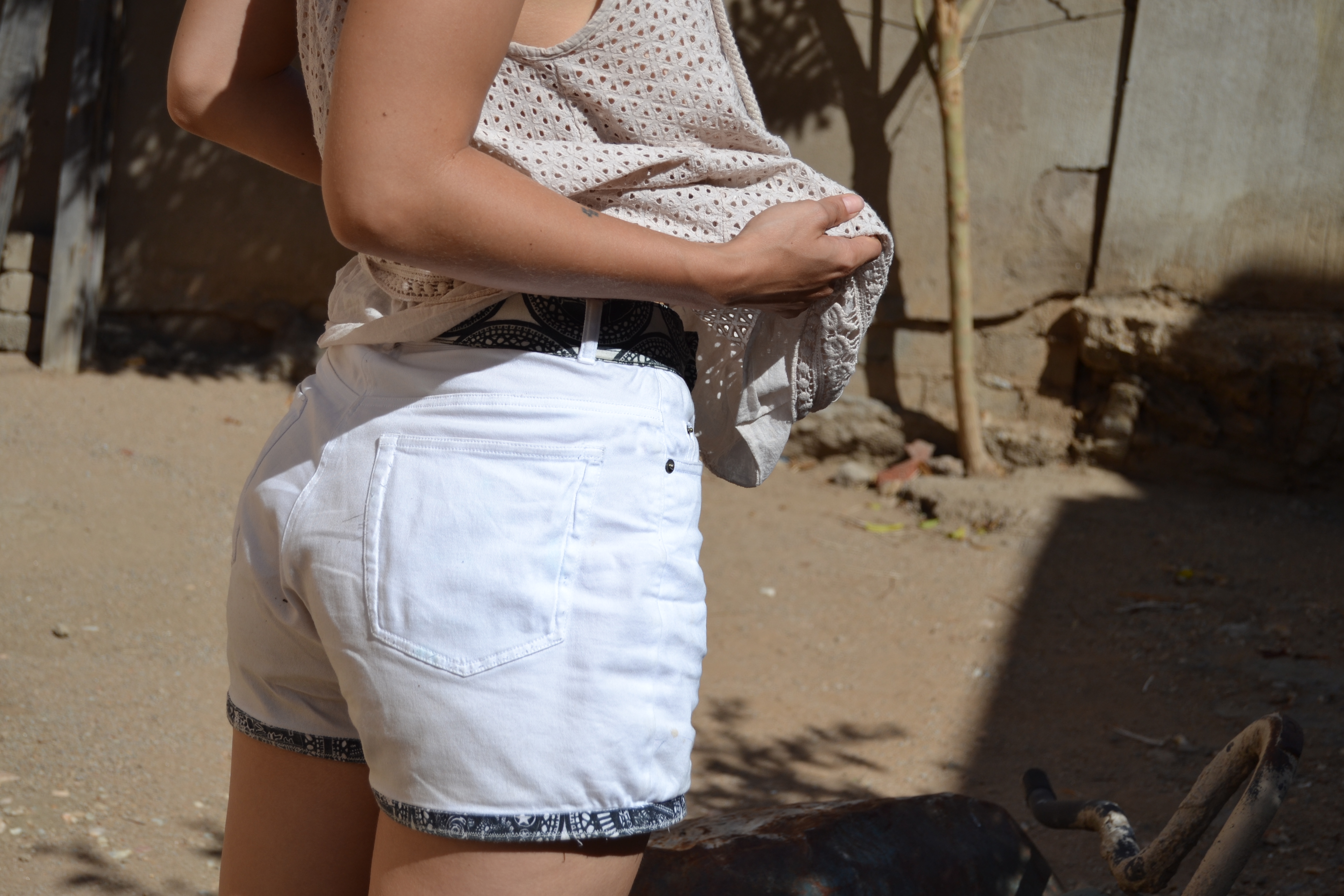
M: What other Namibian brands, if any have benchmarked Team Hermit?
TH: So far I have not met a Namibian clothing or accessories brand that is specifically produced in a way to lessen the environmental impact but I have found brands that promote local industry and production which ultimately reduce fossil fuel consumption in the import of finished products.
I believe AfroPrint makes their products locally and Concept ForwardSlash Forward Slash definitely does.
Outside of apparel and accessories the newly opened ZeroWaste Store in on a mission to reduce environmental impact and local markets like the BioMarkt promote local and organic produce as well.
Not to forget, Yashena Textile. Although they collaborate with tailors from Senegal to produce their accessories, they do a lot of work to promote Namibian culture and industry by exposing the world to the ondelela as a trading cloth or textile

M: What do you wish you could be doing more of in the sustainability space and what steps are you taking to do that?
I would love Team Hermit to produce the fabric in Namibia to start but that industry is water-expensive so I am doing research into finding an alternative fabric solution that can be made from up-cycling and recycling plastic waste. Outside of that, I want to raise awareness of the impact consumers have on the environment.
This sort of feature, and ones in the future definitely help with educating people of their contribution to the environment. Thank you!
5 Fun Facts about your brand
The brand name ‘Team Hermit’ is an oxymoron.
‘3ARTH’ represents three Earth zodiac signs: Virgo, Capricorn and Taurus.
The Team Hermit logo is a Hermit Crab.
‘Harmony’ is also known as the ‘millennial ondelela’.
There is a sacred geometry hidden in the ‘Harmony’ design.
Follow Team Hermit Apparel
for updates and purchase inquiries.
